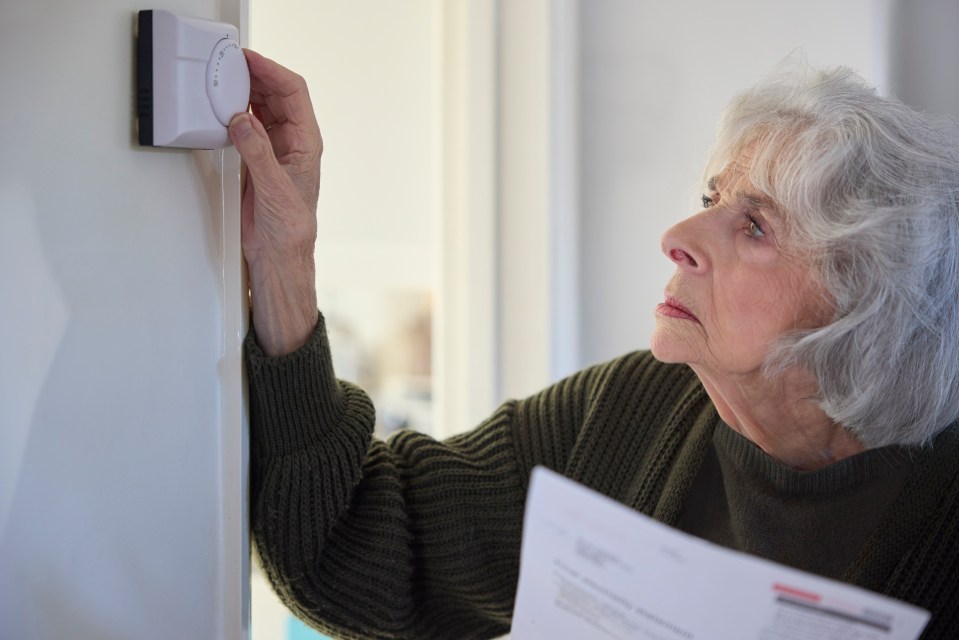How a Clever Contraption Can Help Slash My Energy Bills by £130 a Year

As the clocks prepare to change this weekend, Brits are being encouraged to perform a simple check to avoid unnecessary increases in household bills. With spring upon us, the clocks will move forward at 1am on Sunday, March 30, allowing many to look forward to longer days filled with sunlight. However, this transition also poses a risk of higher energy bills for many households.
The clock change signifies the beginning of British Summer Time, which unfortunately means losing an hour of sleep for everyone. The practice of adjusting the clocks was first introduced in 1916 with the aim of providing farmers with more daylight during the summer months to enhance crop production. While this change has its advantages, it brings a significant downside that can impact energy costs.
Energy experts have alerted the 20 million Brits on Time of Use tariffs to adapt their energy consumption habits following the time change. Those on these tariffs pay more for electricity during peak hours compared to off-peak hours. To maximize savings, it is advisable to operate household appliances either late at night or early in the morning when electricity rates are lower. For instance, some energy suppliers charge less for usage between midnight and 7am.
However, it’s crucial to note that Time of Use tariffs do not automatically adjust for the clock change. Consequently, the cheaper tariff window will shift forward by an hour, changing the off-peak hours to 1am to 8am after the clocks spring forward. Off-peak hours can differ from one supplier to another, so it’s wise to check your energy provider’s website for the specific times that apply to you.
Kara Gammell, a personal finance expert at MoneySuperMarket, advised: “If you’re on a time-of-use tariff, also referred to as Economy 7, it’s important to adjust your routines when the clocks go forward this weekend. These tariffs offer lower electricity rates during off-peak hours, typically between midnight and 7am, while charging more during peak times. Since smart meters don’t recognize the time change and continue to operate on Coordinated Universal Time (UTC), it’s essential to reset any timers you’ve programmed for devices like hot water tanks or washing machines. Don’t forget to review your contract terms or visit your energy supplier’s website to confirm your updated off-peak times, ensuring you’re getting the best value from your tariff.”
Smart Meter Check

With energy bills set to rise next week, Brits are also encouraged to check their smart meters. Millions of households across the UK utilize smart meters to automatically relay information regarding their energy consumption to suppliers. However, data from Ofgem indicates that about one in ten smart meters may not be functioning correctly, which could lead to overcharges on energy bills.
Chris Shaw, chief executive at Utility Bidder, noted: “There may also be communication issues with your energy supplier stemming from the inaccurate readings of a faulty meter. This could result in you relying on estimated charges based on previous bills, which can lead to frustration and financial stress.”
Common Myths Surrounding Energy Consumption

Gwilym Snook, an appliance expert at AO.com, has debunked several commonly held myths regarding appliances and energy efficiency:
- MYTH – An Empty Fridge Freezer is Cheaper to Run: Many believe that a fridge freezer operates more efficiently when empty due to the lack of items needing cooling. In reality, a well-stocked fridge maintains its temperature more effectively and, therefore, consumes less energy.
- MYTH – Washing Clothes at Higher Temperatures Cleans Better: Contrary to popular belief, washing clothes at 30°C is adequate for most fabrics and can reduce energy costs by up to 50% compared to a 40°C wash.
- MYTH – Tumble Dryers are Not Eco-Friendly: While older tumble dryer models may have consumed excessive energy, modern heat pump tumble dryers recycle warm air, drying clothes at a much lower cost—averaging around 63p per cycle—especially when used during off-peak hours.
- MYTH – Boiling Water in Your Kettle is Always Energy-Efficient: While kettles are generally energy-efficient, overfilling them wastes energy. It’s advisable to boil only the necessary amount of water to save money in the long run.
- MYTH – Energy-Efficient Appliances Don’t Make a Difference: Many believe that energy ratings don’t significantly impact consumption. However, appliances with high A ratings can drastically reduce energy bills compared to older models. For example, replacing an old fridge-freezer with a new energy-efficient model could save up to £100 annually on electricity bills, making it a worthwhile investment.
Starting April 1, the energy bill for a typical household is set to rise by £111, reaching £1,849 per year for those using both electricity and gas and paying via Direct Debit. Therefore, ensuring accurate meter readings is more crucial than ever.